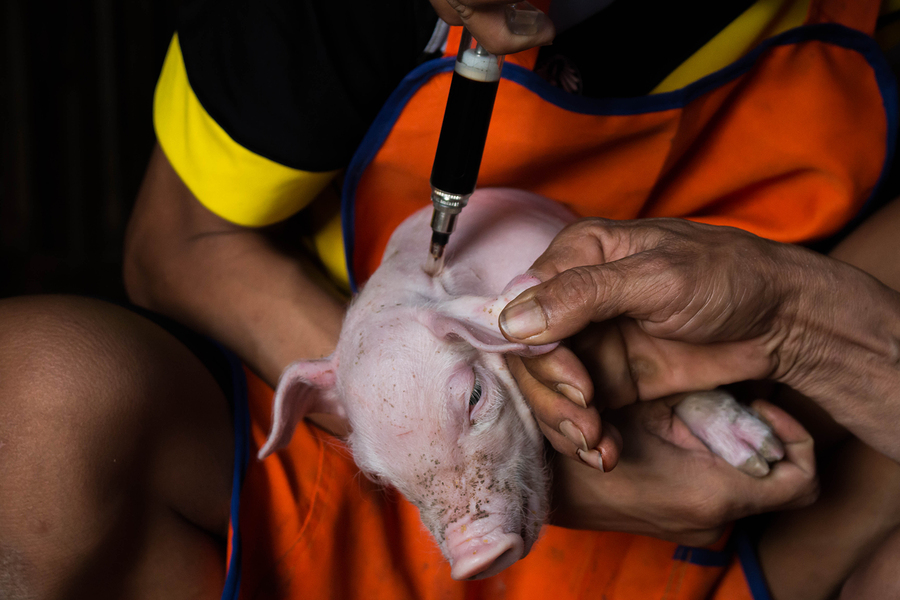The Five Biggest Obstacles to Food Safety Standards Compliance
By Mark Mendonca
Next to pharmaceuticals, the food industry is possibly one of the world’s most regulated industries. This is only natural, when a slight impurity can threaten the lives of consumers. What that means, however, is that a food company that wants to share space with the biggest names on the shelves of retail stores—big and small—must maintain both regulatory and leading GFSI schemes. What stands in the way? Here are five of the most common obstacles to standards compliance many companies face.
1. Lack of Management Commitment
A company that wants to succeed needs to commit itself to its food safety policy. This ensures that food safety is embedded in every level of the business. If senior management does not provide the necessary resources and time required for implementing an effective HACCP program, the company will not be able to meet its food safety objectives.
Resources might include hard dollars, but it might also require a commitment to ongoing maintenance of the facility and equipment, as well as the supplies required to support the effectiveness of the program.
A company that wants to succeed needs to commit itself to its food safety policy.
2. Failure to Address Pest Control Recommendations
Pest Control is an ongoing process where technicians regularly report and remedy pest-related issues. Often management does not give this area the attention it demands, taking a short-term approach that leads to repeatedly small, reactionary steps. These only keep the issues in check without addressing the underlying problems.
Management needs to regularly review service reports and ensure recommendations are addressed properly, creating a corrective action when deficiencies are found. When management addresses these issues accurately it ensures the facility can prevent future reoccurrences.
3. Incomplete Reassessment of the Food Safety Program
Another task that is often ignored is the annual reassessment of food safety programs, including the Hazard Analysis and Critical Control Points (HACCP) program, Standard Operating Procedures (SOPs), Sanitation Standard Operating Procedures (SSOPs), and work instructions. Reassessment is both a regulatory and international standards requirement. Keeping up with evolving processes, scientific research, and regulations and compliance requirements is crucial.
In order to complete a full program reassessment, it is imperative that management properly connects all associated documents which are related to the food safety program.
4. Language Barriers in Training
The workforce in the food industry is dynamic, it can be largely multicultural, and it may include seasonal laborers. The workforce may not be able to completely grasp the training delivered and the importance of specific aspects of it, often due to language differences; this can increase chances of contamination. Training should therefore be a high priority at every level.
Training should be conducted regularly and frequently, keeping the needs of the workers in mind, which means hiring trainers fluent in workforce languages and using communication materials that make sense to designated employees. Increasing cultural sensitization can also ultimately lead to reduced incidents of contamination and a higher likelihood of workers reporting food safety incidents.
5. Insufficient Approved Supplier Program
Having an insufficient approved supplier program can often be detrimental to the quality of sourced materials. Ensuring quality at every step of the procurement process helps support a high quality in the final product and reduces the chances of a company failing a third party audit. It is essential that the internal supplier approval program contains all necessary components.
A well-maintained supplier approval program includes not only obtaining third party certification, but also includes a detailed questionnaire which supports internal food safety requirements for the supplier.
Complying with standards, whether they are regulatory or scheme-specific, will always be challenging. Therefore, it is always important that management continues to stay abreast of food safety standards, which will ultimately enable them to stay ahead of the curve.
About the Author
Mark Mendonca is the CEO of Mendell Consulting, a company that provides professional assistance with the development, verification and implementation of comprehensive food quality and process control systems, which align with global food safety standards and regulatory requirements. Mark is also an advisor for a food safety software, which is used, in federal and non-federal plants. For further inquiries, please contact Mark at [email protected].

-
 FeaturedRisk management
The Cost of a Breach: What a Cyberattack Could Mean for Food Safety Recalls
FeaturedRisk management
The Cost of a Breach: What a Cyberattack Could Mean for Food Safety Recalls
-
 FeaturedRisk management
Securing the Food Chain: How ISO/IEC 27001 Strengthens Cybersecurity
FeaturedRisk management
Securing the Food Chain: How ISO/IEC 27001 Strengthens Cybersecurity
-
 FeaturedRisk management
Revolutionizing Food Safety Training: Breaking Out of the “Check-the-Box” Mentality
FeaturedRisk management
Revolutionizing Food Safety Training: Breaking Out of the “Check-the-Box” Mentality
-
 GFSI Standards
GFSI 2025: Building Trust, Tech-Forward Solutions, and Global Unity in Food Safety
GFSI Standards
GFSI 2025: Building Trust, Tech-Forward Solutions, and Global Unity in Food Safety
-
 FeaturedFood Safety
Integrated Pest Management: Strategies to Protect Your Brand’s Reputation
FeaturedFood Safety
Integrated Pest Management: Strategies to Protect Your Brand’s Reputation
-
 FeaturedFood Safety Culture & Training
No Open Door Policy: Challenges That Impact Pest Control in Food Processing Plants
FeaturedFood Safety Culture & Training
No Open Door Policy: Challenges That Impact Pest Control in Food Processing Plants




